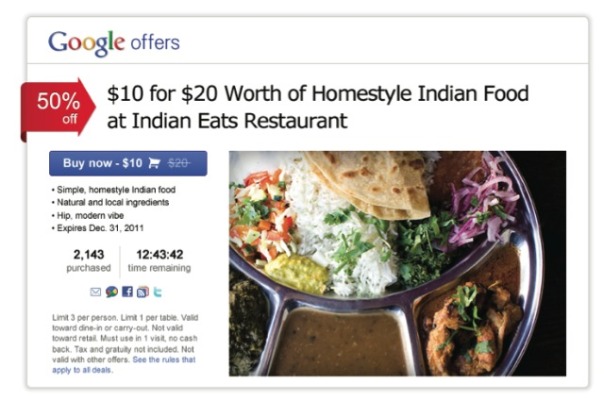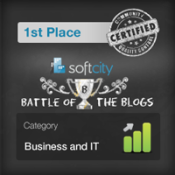Blog Archives
Online Advertising Has Plenty of Room to Grow – Mobile, Social and Branded Content
In the wake of the explosive LinkedIn IPO, which saw a 109% first day gain that valued the nine-year old company with over 100 million users at $8.9 billion, an intense spotlight has been focused on the new wave of Web-based companies that have taken venture capitalists and private and secondary markets by storm. The highly anticipated and inevitable IPOs of Web titans Facebook and Groupon have – rightly or wrongly – brought up fears of a “bubble” reminiscent of the dot-com bust that wiped away the fortunes of millions and oversaw the collapse of hundreds of “companies” that rushed to go public without revenues, not to mention profits.
(My take? We’re not in a bubble. Not yet. The lessons from a decade ago are fresh enough in the minds of VCs and investors, and the simple fact that we are being cautious and asking questions proves we are eons away from the insanity of 2000.)
The promise of the new media era is dependent on a new era of advertising, one that is integrated across many platforms, channels and formats. The booming success of Google and others dependent on online advertising may lead some to think that the market is saturated, leaving little opportunity for new entrants or growth for existing players. However, the data paints a dramatically different picture. The IAB projects double-digit growth in global online advertising spending for each of the next four years, reaching nearly $100 billion by 2014, or 17.4% of combined global ad spending.
There is a significant trend that one doesn’t need to dive through troves of data to recognize: people across the world are spending more time online. The time spent online on computers, tablets and smartphones is dramatically increasing year over year, but even these markets are relatively under-served. Just 82 million of more than 330 million Americans access the Internet on their mobile phones, and just 31% of wireless subscribers own a smartphone. Even with the billions of dollars in profits enjoyed by Apple, Google, Nokia and Microsoft in the mobile sector, the market is just getting started. More users with more Web-enabled smartphones means more ad dollars flowing to Web companies from the world’s biggest spenders.
So does this mean the tens of billions of dollars spent on television advertising will magically flow online? No. New value is created by reaching consumers online, and that means new dollars will be spent. Television advertising offers benefits that the hottest social media and branded content companies could never provide, and vice versa. It is the value of connecting and conversing with consumers in the new media era that will entice advertisers to direct new dollars from their ad budgets toward online campaigns.
The power to connect brands and consumers where the conversations are happening (social) and at the point of intent (branded content, action-oriented content) provides the opportunity for companies that offer these services to capitalize on the significant upside potential in the online advertising market. Online advertising isn’t just text links and banner ads. The new formats enabled by tablet and mobile technology and revolutionary business models ensure Silicon Valley’s best executors will reap the rewards of a booming online advertising market in the coming years.
Hat Tip: AdWeek – The Changing Scope of Online Advertising
IAB Report: 2010 Internet Advertising Reveneus Increase 15% to $26 Billion, A New Record
Want more exclusive content? Connect with us on Facebook here and follow us on Twitter @LetsChatBiz.
As Bing Sees Big Gains, Is Microsoft Cool Again?
Under the tutelage of Bill Gates, Microsoft exploded into one of the world’s largest and most valuable companies, generating billions of dollars in profits annually for shareholders. The dot-com boom made many employees and investors millionaires, and the company appeared unstoppable.
As the company matured, growth stabilized and new tech darlings like Google stole the spotlight. Delayed product launches of centerpiece operating systems, failed products and advertising campaigns, broken acquisition deals and an apparent lack of internal innovation gave Microsoft a reputation as a “has been” that had passed its prime, and current CEO Steve Ballmer lost the confidence of many investors.
However, new data is showing that Microsoft may be experiencing a reversal of fortunes, as the company’s investments in search are beginning to pay off. The brutally competitive search engine market has had one dominant player for the last decade – Google – which has held as much as 80 percent of the United States search market.
In October 2010, the U.S. search marketshare breakdown was as follows: Google (72.15%); Yahoo + Bing (23.64%). The most recent Hitwise data shows Bing has made substantial gains at the expense of Google and Yahoo. Bing-powered search now controls 30.01% of the U.S. search market, while Google’s share has fallen to 64.42%. (See below: Image courtesy of Mashable.)
These gains may be the result of a major multi-platform ad push by Microsoft for Bing, but the trend is a positive sign for investors and spectators that have remained loyal to the company.
Strong performance in search, high expectations for tablet and PC versions of the upcoming Windows 8 platform, new developer confidence in the Windows Phone platform following the recent Nokia partnership announcement, the smashing success of Kinect and Xbox 360 and widespread adoption of Microsoft’s iPhone and iPad apps are powerful indicators of a possible Microsoft mindshare and marketshare resurgence.
Less than a decade after Wall Street and Silicon Valley critics alike pronounced the death of Apple as a legitimate player in the lucrative personal computer market, the world has witnessed the resurgence of the Cupertino-based company as the dominant force in the rapidly-growing world of consumer electronics. Could we be seeing the beginning of an Apple-esque Microsoft turnaround? Critics will call it wishful thinking, but with Google in the process of a massive leadership change, Yahoo! undergoing a drawn-out transition phase and the tenure of Apple CEO Steve Jobs uncertain, the competitive landscape is changing and Microsoft has substantial opportunities in search, PCs and mobile.
Create Custom Text Clouds with Wordle
Free utility software is one of the great perks of the Web, with generous tinkerers sharing their creations with the world at no cost. One of my favorite tools, Wordle, comes from Johnathan Feinberg and partial source code owner IBM.
Wordle is a clever tag cloud tool that automatically creates a custom text cloud from a slate of creative templates. Users can enter text manually, copy/paste text blocks, or allow the program to crawl any website and Wordle will create a custom word cloud with the given text. Users can then edit word orientation, edit text colors, alter color variation and access a host of other customizations.
(Click to enlarge.)
To create your own custom text cloud for free, visit www.Wordle.net.
What are your favorite free tools from around the Web? Share with a comment below.


















